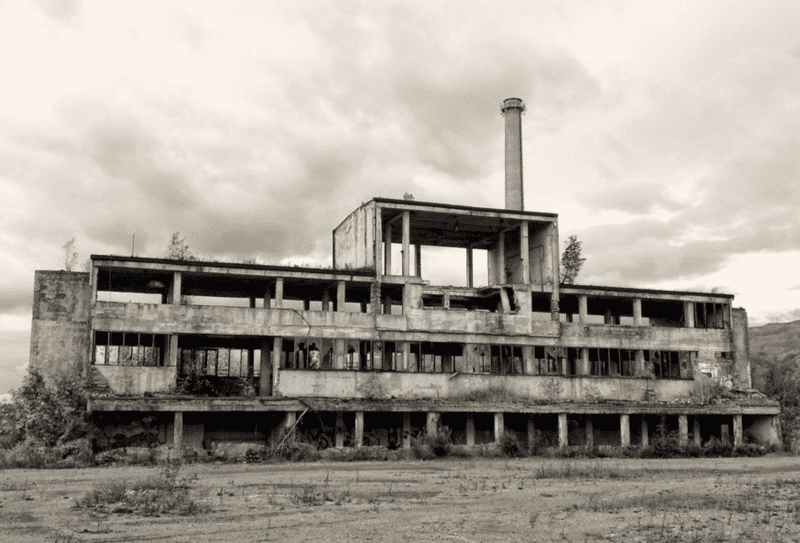The following question/though experiment is a great conversation starter for product managers and other stakeholders. The deeper you go, the more valuable it gets.
What if the team simply stopped adding new complexity to your product? What exactly would happen? When?

http://past1978.deviantart.com/art/Destroyed-factory-175203951This is an interesting question for a couple reasons. First, you begin to realize how obsessed we are about output. The scenario itself makes us uncomfortable.
Sadly, some teams are severely restricted in their ability to deliver value (because of debt, high utilization, fighting fires, lack of autonomy, dependencies, etc.) Teams often reply with “that is a batshit crazy, unreasonable scenario”, only to admit that they haven’t delivered anything of validateable value for months (or years).
Other teams “build and release stuff”, but have a loose grasp on the economic impacts they generate. This is where the question is useful. The idea that you’d build less is anathema to product development teams, but keep in mind that this is a thought experiment.
How would your organization be impacted financially as time passed?
What would happen to your balance sheet and income statement? Why?
When would customers churn? Why?
How would your market share change? Why?
What would happen to NPS scores? Why?
How would your relationship with your investor(s) change?
How would your marketing strategy change and adapt?
How would your long term growth potential; change? You might end up with things like “well, by Q3 we will lose $1.2m in new sales because we don’t offer the Widget X feature”. That is a helpful data point, and something worth talking about (and exploring the assumptions linking the feature to the revenue). You’ll also hear remarks like:
We will lose the confidence of our investors if we don’t innovate
NPS scores would drift slightly downwards, hitting ## by Q1 2018. It would likely be because ___________, and would cost us $____________
Competitor X will start stealing our customers, because _____________ The impact would be $____________ .
We will miss an opportunity to create an ecosystem worth $2.5m if we don’t act before ____________ enters the market in Q2 2018 With each item try to provide a date, an economic impact, and some possible causes. Test that story with other stakeholders. What are other ways you could mitigate/accentuate that impact (especially important when someone is stuck on a specific feature). This is a great exercise to fuel discussions about cost of delay.
When you do this exercise with many teams, you’ll start to notice some similarities and patterns. Teams are …
- programmed to build, and obsessed with output … down to our project lists, backlogs, celebrations, reporting structures, etc.
- don’t consider the economic impact of their work
- talk about “value” in prioritization, but don’t quantify it
- nervous about estimating value for things like customer experience / satisfaction
- build features that don’t need to be built right now
- parallelize efforts, when there would be more economic benefit to focus
- teams build too much, and add too much complexity
- are bogged down in complexity
- have acclimated to a level of value delivery that is not economically viable
- don’t ask: “how could we achieve the same outcomes by building less”
- are frequently called in for “optics” work (investors, partners, etc.). This is very common in the startup world
- don’t talk about the economic impacts of technical debt Give it a try. What did you end up talking about? Once you’ve quantified your baseline economic impacts, how can you go about creating those impacts by adding as little complexity as possible to your product?